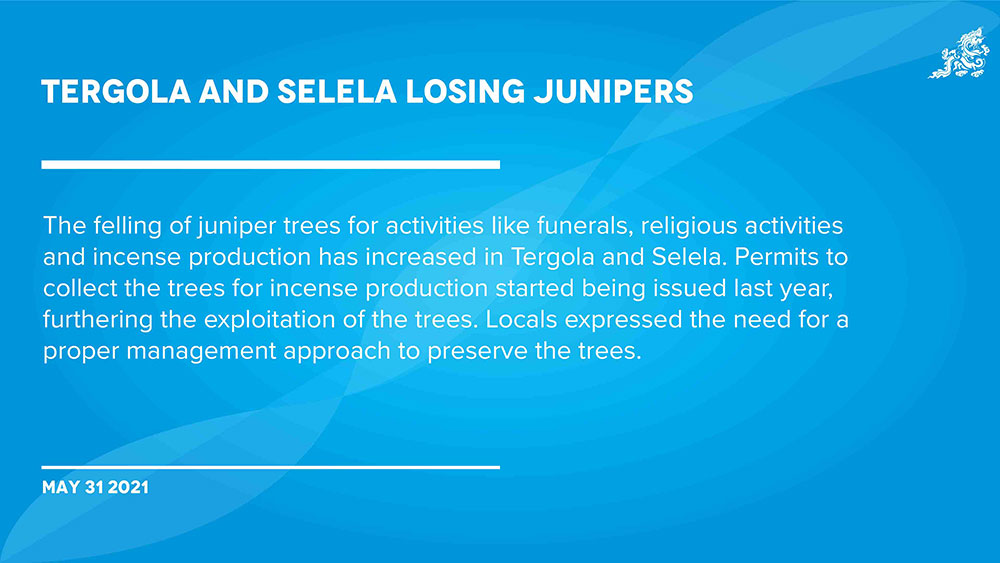Felling of juniper trees in Tergola and Selela for religious purposes, cremating the dead and for incense production has become a concern for the people in the locality.
According to Samer gup, Tshewang Tobgay, the gewog has received numerous complaints regarding the over-harvesting of aromatic plants and trees in Tergola and Selela.
He said that the two passes were rich in medicinal and aromatic plants a decade ago. However, developmental activities around the pass are affecting the natural resources. “Junipers along the two passes are on the verge of extinction due to over-harvesting.”
Until last year, he said that people fell juniper trees from Tergola even when the funeral was in Thimphu.
Forest and Nature Conservation Rules and Regulations of Bhutan 2017 allows four cubic metres of juniper wood for cremation.
Bhutan’s death rate is estimated at 6.5 per 1000 persons, which translates to 5,000 deaths annually, 5,000 cubic metres of juniper is felled for funerals.
Buddhists believe that cremating a body with aromatic juniper would liberate the dead and help them achieve good rebirths.
Other than its use in crematoriums, juniper is also used in manufacturing incense.
According to Tshewang Thinley, the permit to collect junipers for incense production starting last year has led to further exploitation of the trees.
Considering the significant impact on the natural resources, he proposed for either restricting the collection of junipers or sustainable harvesting during Haa Dzongkhag Tshogdu (DT).
He said that there should be strict rules and management strategy to preserve the trees.
An official from Jigme Khesar Strict Nature Reserve said that forest officials were protecting the area under the reserve and imposed fines and penalties.
If the local government wanted to stop the collection, he said that the relevant agency could discuss a way to conserve the trees. “It will be unfair if we stop issuing the permit when business establishments have a licence from the trade.”
DT chairperson, Thinley, said that it was often difficult to monitor collectors due to the vast area and limited field officers.
DT resolved to call a consultation meeting among relevant agencies to frame a way forward to preserve the trees.
Phuntsho Norbu, who owns an incense production unit in Haa, said that it was difficult to get raw material such as juniper. “I buy the raw materials from locals who have the permission to collect the aromatic trees and plants.”
He said that there were many illegal harvesting of junipers taking place in Tergola, which has left the pass almost barren now. “There is an exploitation of natural resources which will directly affect the business in some years.”
He added that the production unit could use dead and dying trees to make incense stick and powder.
According to sources, locals were involved in the illegal felling and collecting aromatic plants and trees, transporting them to other dzongkhags.
By Phub Dem | Haa
Edited by Jigme Wangchuk


